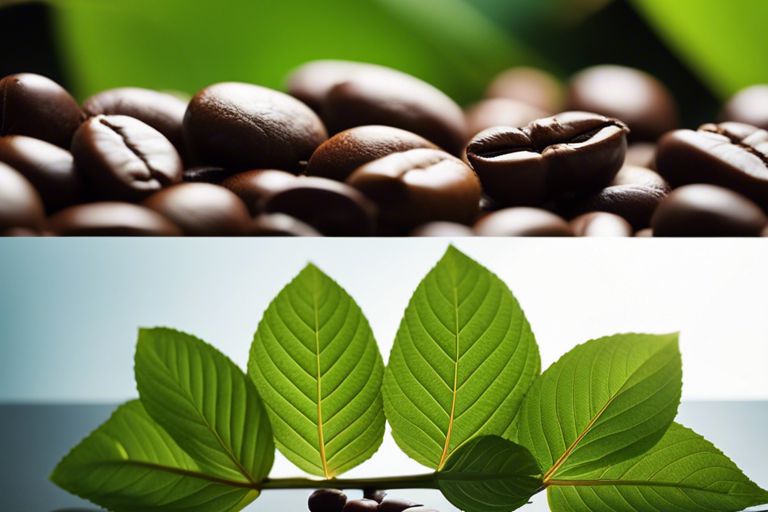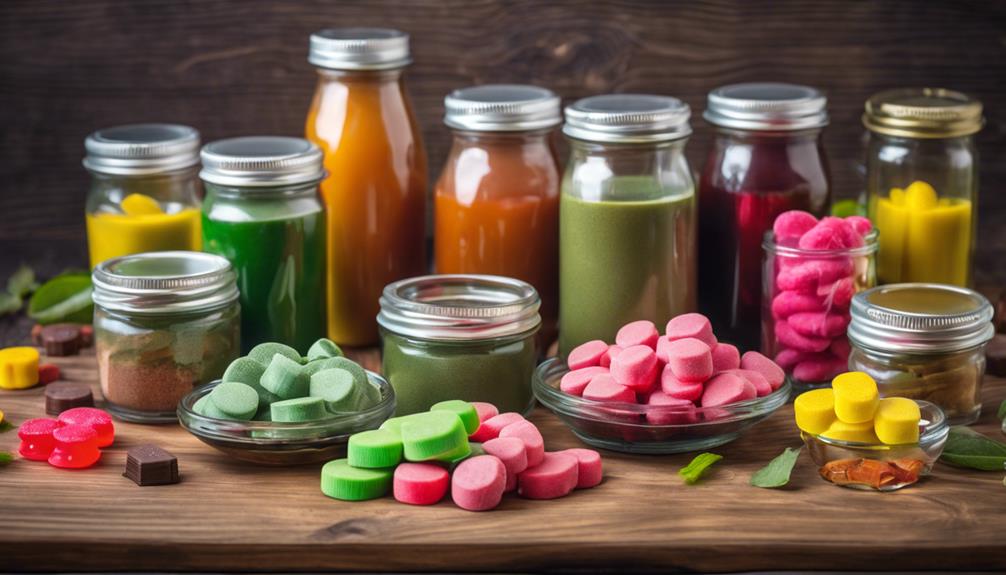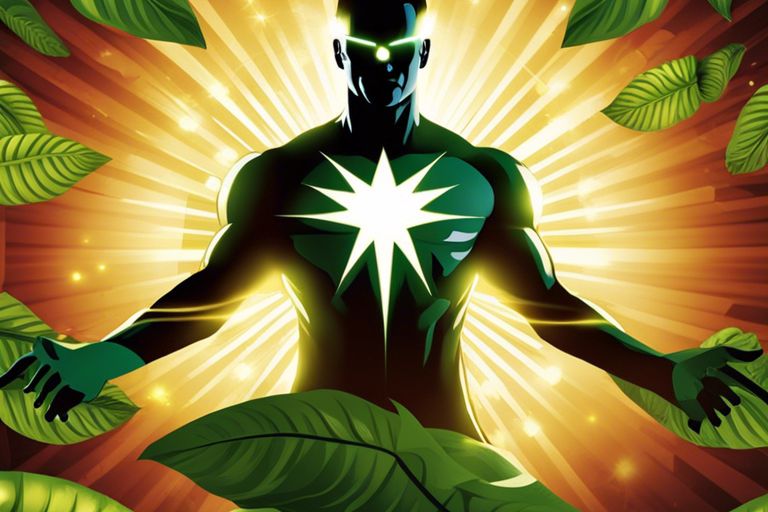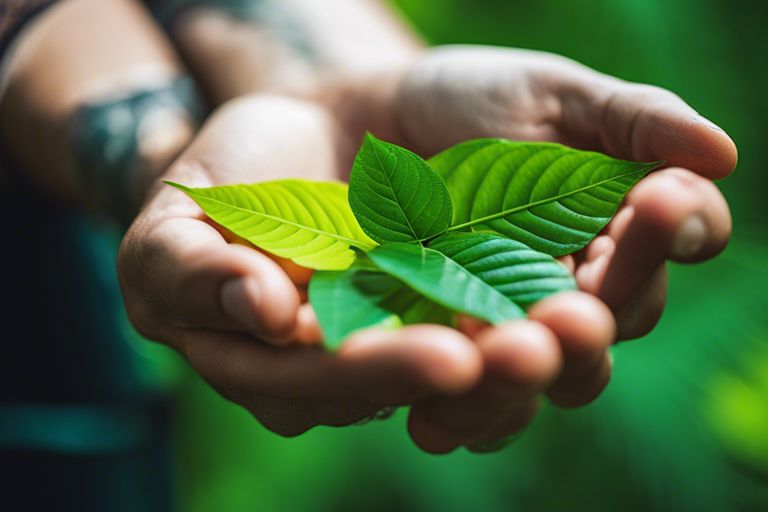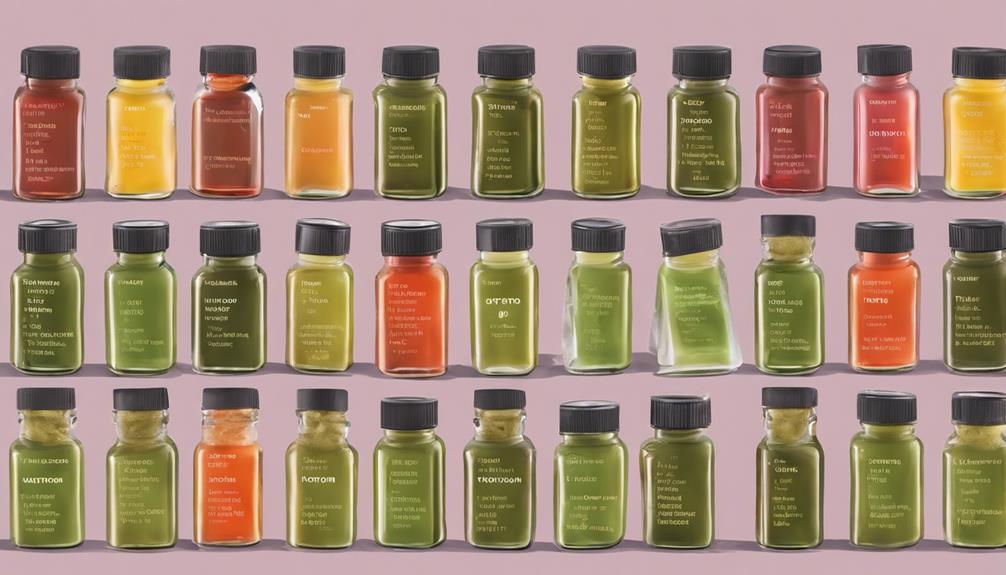Many wonder: does kratom have caffeine? This informative piece explores into the intricate world of kratom to uncover the truth behind its caffeinated properties. By exploring the potential correlations between kratom and caffeine, we aim to provide a comprehensive answer to this intriguing question. So, grab a cup of coffee and let’s unravel the mysteries of kratom and caffeine together.
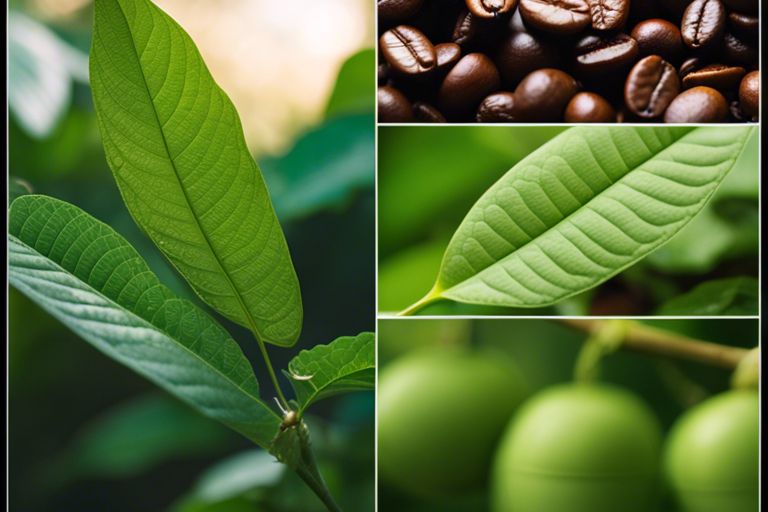
Key Takeaways:
- Kratom does not contain caffeine: While kratom may produce similar stimulating effects to caffeine such as increased alertness and energy, it does not actually contain caffeine.
- Kratom’s stimulating properties: Kratom’s stimulating effects are attributed to its active compounds, particularly mitragynine, which interact with opioid receptors in the brain.
- Understanding kratom’s effects: It is imperative to research and understand the specific properties of kratom before consuming it, especially for individuals seeking stimulant effects similar to caffeine.
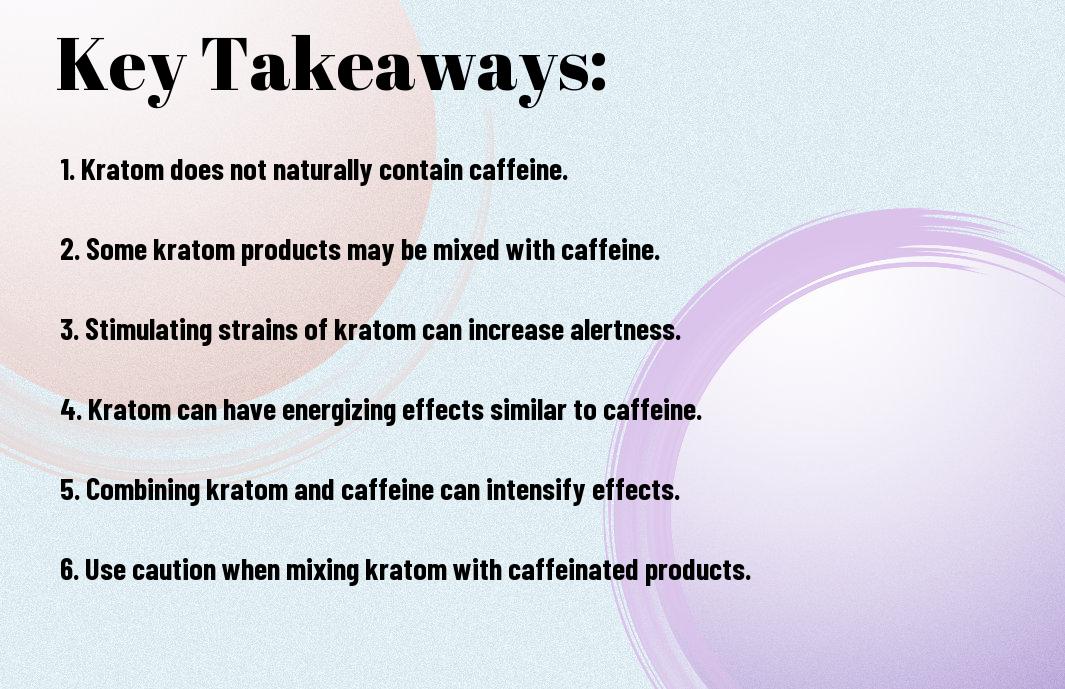
Kratom and Caffeine: A Brief Overview
What is Kratom?
With the increasing popularity of natural remedies, kratom has emerged as a plant-based substance with potential medicinal properties. Kratom, scientifically known as Mitragyna speciosa, is a tropical evergreen tree native to Southeast Asia. It belongs to the coffee family and has been traditionally used for its stimulant effects and as a remedy for various ailments.
What is Caffeine?
Briefly put, caffeine is a natural stimulant found in coffee, tea, and various other products. It is the most widely consumed psychoactive substance globally, known for its ability to improve focus, energy levels, and even athletic performance. Caffeine works by blocking the effects of adenosine, a neurotransmitter that relaxes the brain and makes you feel tired.
Caffeine is commonly consumed in beverages like coffee and tea, as well as energy drinks and some medications. It is known for its stimulant effects on the central nervous system, which can help people stay alert and improve concentration. However, consuming too much caffeine can lead to negative side effects such as jitteriness, anxiety, and insomnia if not consumed in moderation.
The Chemical Composition of Kratom
Some studies have examined into the chemical composition of kratom to understand its effects better. Kratom contains over 40 different compounds, with the most significant being alkaloids. These alkaloids are responsible for the plant’s psychoactive properties.
Alkaloids in Kratom
With a complex chemical makeup, kratom contains various alkaloids, with two primary ones being mitragynine and 7-hydroxymitragynine. These alkaloids interact with opioid receptors in the brain, producing effects similar to opioids but with milder intensity. These alkaloids are what give kratom its unique properties, impacting mood, pain perception, and energy levels in users.
Mitragynine and 7-Hydroxymitragynine
The primary alkaloids found in kratom, mitragynine, and 7-hydroxymitragynine, are responsible for most of its effects. Mitragynine acts as a stimulant at lower doses, while 7-hydroxymitragynine acts as a sedative at higher doses. This dual action makes kratom unique in its effects, offering users versatility in how they want to experience its benefits.
Composition-wise, mitragynine and 7-hydroxymitragynine play a crucial role in determining the overall effects of kratom on the consumer. Understanding the presence and ratio of these alkaloids is vital in predicting the impact that a particular kratom strain will have.
Does Kratom Contain Caffeine?
The Short Answer
Now, the short answer to the question of whether kratom contains caffeine is no. Kratom is a plant native to Southeast Asia that belongs to the same family as coffee but does not contain caffeine as one of its active ingredients. However, kratom does have stimulating effects similar to caffeine, which is why some may wonder if it contains this common stimulant.
The Science Behind Kratom’s Effects
An in-depth look at the components of kratom reveals that it contains alkaloids such as mitragynine and 7-hydroxymitragynine, which interact with opioid receptors in the brain. These interactions contribute to kratom’s pain-relieving and stimulating effects. While kratom does not contain caffeine, its stimulant properties may be mistaken for those of caffeine.
Any misconceptions about kratom containing caffeine likely stem from its energizing effects, which can improve focus and alertness. It’s important to understand that kratom’s stimulating properties come from its unique alkaloid composition, not from caffeine.
How Kratom’s Effects Differ from Caffeine
Stimulating vs. Sedating Effects
To understand how Kratom’s effects differ from caffeine, it’s necessary to recognize the differences in their stimulating versus sedating effects. While caffeine is predominantly known for its stimulating properties, Kratom can produce both stimulating and sedating effects, depending on the strain and dosage. Some Kratom strains like Maeng Da are known for their energizing effects, similar to caffeine, but other strains like Red Bali are more sedating and can even promote relaxation and pain relief.
Duration of Effects
The duration of Kratom’s effects also sets it apart from caffeine. While the effects of caffeine typically last for a few hours, the duration of Kratom’s effects can vary significantly. Generally, Kratom’s stimulating effects tend to last around 2-4 hours, while its sedating effects can last up to 6 hours or more. This longer duration of effects can be appealing to individuals seeking sustained relief from pain or anxiety.
Understanding these differences in effects is crucial for individuals considering using Kratom. It’s important to note that Kratom can have stimulating or sedating effects, depending on the strain and dosage. Additionally, the duration of Kratom’s effects can vary, with some strains providing longer-lasting benefits than caffeine. This nuanced understanding can help individuals make informed decisions about incorporating Kratom into their health and wellness routines.
The Potential Interactions Between Kratom and Caffeine
Once again, we explore into the complex world of kratom and caffeine interactions. While both substances can have stimulating effects on their own, when combined, there is a potential for interactions that may affect the overall experience. Understanding these interactions is crucial for those who consume both kratom and caffeine regularly.
Combining Kratom and Caffeine: Risks and Benefits
Caffeine: When kratom and caffeine are combined, there may be an increased risk of overstimulation or jitteriness. Both substances have stimulant properties, so combining them could potentially lead to unwanted side effects such as increased heart rate, anxiety, or insomnia. It is vital to monitor your intake of both kratom and caffeine to avoid these risks.
Caffeine’s Impact on Kratom’s Effects
Combining: Caffeine has the potential to either magnify or diminish the effects of kratom, depending on the individual’s tolerance and sensitivity to these substances. Some users report that caffeine can enhance the stimulating effects of kratom, while others find that it detracts from the overall experience. It is vital to experiment cautiously and find the right balance that works best for you.
Interactions: The interaction between kratom and caffeine can vary significantly from person to person. Some may experience a synergistic effect that boosts energy and focus, while others may encounter negative side effects such as jitteriness or overstimulation. It’s crucial to pay attention to how your body reacts to the combination and adjust your consumption accordingly to ensure a safe and enjoyable experience.
The Importance of Dosage and Individual Sensitivity
Despite the increasing popularity of kratom, it is crucial to understand that the effects of this botanical substance can vary widely depending on the dosage and individual sensitivity. Finding the right balance is necessary to maximize the desired effects and minimize any potential risks or adverse reactions.
Kratom Dosage and Its Impact on Effects
Sensitivity to kratom can significantly influence the experience and outcomes of consumption. While small doses may result in increased energy, focus, and alertness, larger doses can lead to sedation and relaxation. It is vital for users to start with a low dose and gradually increase it to find their optimal level, as consuming too much kratom can cause adverse effects such as nausea, dizziness, or even respiratory depression.
Individual Variations in Sensitivity to Kratom and Caffeine
An individual’s sensitivity to both kratom and caffeine can vary based on factors like genetics, metabolic rate, and overall health. Some people may experience heightened effects from even small amounts of kratom or caffeine, while others may require larger doses to feel any impact. It is important for users to be aware of their own sensitivity levels and adjust their consumption accordingly to avoid negative reactions.
Importance of understanding personal sensitivity to kratom and caffeine cannot be overstated. Being mindful of dosage and monitoring how your body responds to these substances is necessary for a safe and enjoyable experience. Consultation with a healthcare professional or experienced users can provide valuable insights and guidance in navigating the nuances of kratom consumption.
To wrap up
Now, after exploring the question “Does Kratom Have Caffeine?” in detail, we have discovered that kratom does not naturally contain caffeine. Although it shares similarities with coffee in terms of being a stimulant and providing energy-boosting effects, kratom does not have caffeine as one of its active ingredients. It is crucial to be well-informed about the substances we consume, especially when it comes to natural remedies like kratom, to ensure we make informed choices for our well-being.
Does Red Kratom Contain Caffeine and Can It Affect Anxiety?
Yes, using red kratom for anxiety can be effective as it does not contain caffeine. Red kratom is known for its calming and soothing effects, which can help alleviate anxiety symptoms. Many individuals have reported significant relief from anxiety after using red kratom, making it a popular choice for natural anxiety management.
FAQ
Q: Does Kratom Have Caffeine?
A: No, kratom does not naturally contain caffeine. It is derived from the leaves of the kratom tree, which belongs to the coffee family, but it does not contain caffeine as part of its chemical makeup.
Q: What are the Effects of Kratom?
A: Kratom is known for its stimulating and sedative effects. It can act as a stimulant in low doses and a sedative in high doses. These effects can vary depending on the strain and dosage used.
Q: Can Kratom Interact with Caffeine?
A: While kratom itself does not contain caffeine, it can interact with caffeine if consumed together. This combination may result in increased alertness and energy, but it can also lead to jitteriness and increased heart rate in some individuals.
Q: What are the Risks of Using Kratom?
A: Kratom is not regulated by the FDA, and its long-term effects are not well-studied. It can be addictive and may cause side effects such as nausea, constipation, and insomnia. It is important to use kratom responsibly and with caution.
Q: Is Kratom Legal?
A: The legal status of kratom varies by country and state. In some places, it is legal for personal use, while in others, it is classified as a controlled substance. It is important to check the laws in your area before using kratom.
